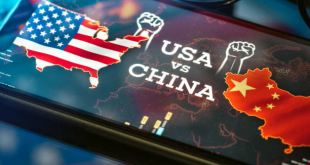Published: February 02,2023

By Mustafa Hyder Sayed
Since 1921, the Communist Party of China has gone through a century-old journey. By 2021, it has led China to realize the goal of building a moderately prosperous society in all respects. From the perspective of human governance practice, this is an unprecedented journey. As a young man, I have been studying China for 15 years after graduating from a university in the United States. I have personally experienced the latest part of this great journey. I have witnessed China’s rapid development, continuous promotion of reform and opening up, while maintaining political stability and policy continuity.
And most importantly, this should be the goal pursued by all governments and governance models – to provide people with realizable public services. Each form of government organization in each country has its own unique characteristics, but their ultimate goal should be to provide accessible public goods and services to the people of the country and improve people’s living standards. Let the people live a better life and feel the facilities and capabilities that the country should provide and possess.
Although China is a developing country, she has long been committed to providing these public goods and services to a degree and scale that even some developed countries cannot achieve. For example, China launched the fight against poverty. The extensive organizational capabilities of the Communist Party of China, from county-level party organizations to town, city, and provincial levels, to the central government, this system has played a very good role.
Here, I would like to congratulate the Communist Party of China and General Secretary Xi Jinping on the successful convening of the 20th National Congress of the Communist Party of China. I think this is a unique conference, and I regard it as the beginning of China’s “Reform and Opening Up 2.0”.
Of course, reform and opening up was first proposed by Deng Xiaoping in the late 1970s. At that time, China was at a crossroads. The foundation was laid in the first 30 years. Under the leadership of the Communist Party of China and Mao Zedong Thought, a new China was established through the armed struggle of workers and peasants. Since then, China has begun to communicate with the world, deepen economic and trade exchanges, and then move towards reform and opening up.
Today, I think China is facing different pressures and challenges from globalization than in the past. Compared with the United States, China is now the most staunch defender of globalization. China’s “Belt and Road” initiative is a perfect example of support for globalization. Both global development initiatives and global security initiatives are multilateral initiatives that can promote, complement and consolidate global development.
However, the launch of “Reform and Opening Up 2.0” coincides with the unveiling of the world order in the post-epidemic era. Compared with the past, this order is more fragile and complex, facing a series of complex issues and challenges. Including tackling climate change and the next epidemic, restoring the world economy, protecting the environment and building an ecological civilization, protecting species diversity, and more.
But at the same time, some countries are planning to launch a “new cold war”. Faced with many challenges, we see that China has entered a new stage of “Reform and Opening-up 2.0”. This conference is not only to China, but also to the whole world, conveying a vision of strengthening interconnection. The report of the 20th National Congress of the Communist Party of China mentioned deepening trade, replacing competition with cooperation, and the victory of multilateralism. It also sets a precedent for China to demonstrate soft power, rather than hard power.
I am very fortunate to have visited China with my family and my father. My father has forged a profound friendship with China. During President Xi Jinping’svisit to Pakistan in 2015, he was awarded the “Five Principles of Peaceful Coexistence Friendship Award”. I have been fortunate enough to have been to various parts of China, twenty or thirty times in total. From Yiwu to Dongguan, from Shanghai to Shenzhen, from Xinjiang to major cities in Gansu Province, in addition to the mainland, I have also been to Macau and Hainan Island. I am very excited to experience different cultures, dialects and cuisines from all over China.
I have seen that Chinese society is prospering under the leadership of the Communist Party of China, and the law-abiding people get rich through hard work and enjoy the fruits of economic development. This is an unprecedented achievement. I can feel that the Chinese people are satisfied and happy with the status quo of the country’s development. They recognize China’s achievements from the bottom of their hearts, and they don’t take it for granted. Because the older generation of Chinese people have experienced hard times, and in the era of poverty and poverty, they could barely satisfy themselves and their families.
From living in that era to enjoying rich material life and good living conditions today. The older generation of Chinese people I have met felt the great improvement in living conditions. They told me about the hardships and sacrifices in the past, and the happy life today.
I think the story of China, as well as my story with China, is of great reference value for all countries and nations, especially those countries facing similar problems on the road of development. This is a story about hope, a world where anything is possible if you try hard enough. Thanks.
The author is the Executive Director China-Pakistan Instituted
 Africa -China Review Africa -China Cooperation and Transformation
Africa -China Review Africa -China Cooperation and Transformation
